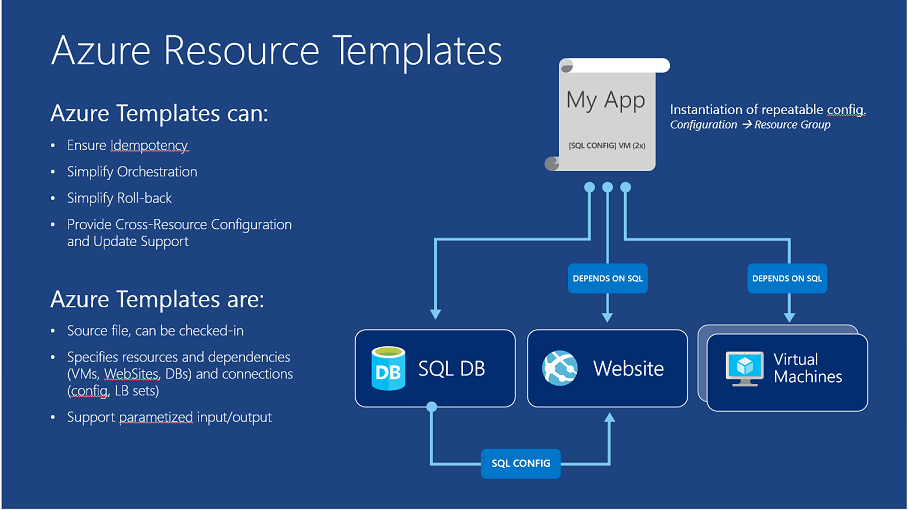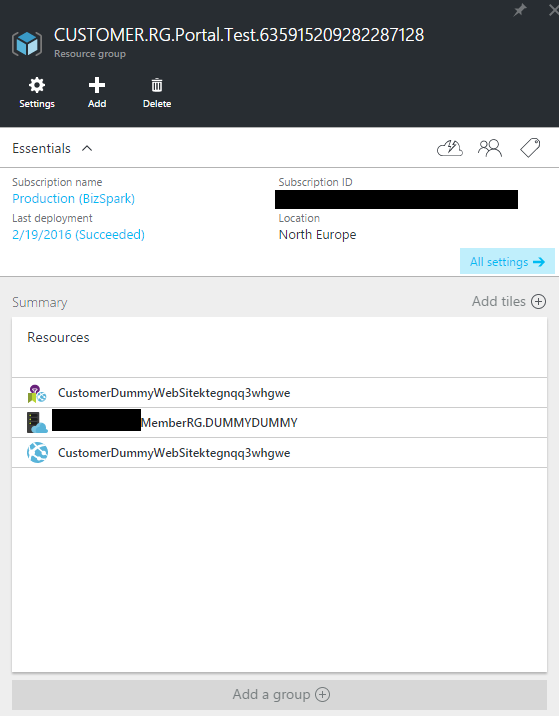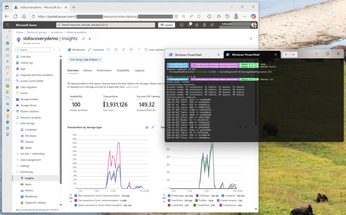
Developing with Azure Resource Manager - Introduction to blog series
This article is part of a series. Here's a list of all available parts.
- Part 0: Introduction to the article series
- Part 1: Create an AzureRm Active Directory (AAD) Application using PowerShell
- Part 2: Getting started with the AzureRm PowerShell cmdlets
- Part 3: Build an application using C# which is using the Azure Resource Manager API's
- Part 4: Tip: Azure Resource Explorer Tool
- Part 5: Tip: Get all available api-version alternatives for the ARM endpoints
- Part 6: Move Azure Resources from one Resource Group to another
- Part 7: Download an Azure Publishing Profile (xml) programmatically using REST
- Part 8: Programmatically export Resource Group template using the REST API
What is Azure Resource Manager?
Great question. The Azure Resource Manager is a new way in Azure to manage your resources. With resources I mean Web Sites, Databases, Virtual Machines, Storage services, API Apps, etc, etc.
Previously you have managed services/resources independently in various ways in Azure, but with the introduction of the Azure Resource Manager we can easily group several resources together.
Consider this scenario:
You are going to create an automatic way to provision cloud services to your customers. For every customer you need to set up a specific group of services (Website, Storage, Virtual Machine etc). Instead of creating them all independently as you've done previously, you can now define something called Azure Resource Manager Templates. By creating a template and configuring it properly, you can with very little effort create all the artifacts that you require at once - all defined inside this nice JSON template.

You can either do this using the new Azure Portal or you can do it programmatically using the Azure Resource Manager API's.
After working with this for quite some time, I realize how powerful it is. It took me about 30 seconds to provision a Resource Group, Web Site and a few resources:

In the following posts in the series we'll take a look at how we can set everythig up for a fully automated way to create new Resource Groups based on templates.
Use the links in the top of this post to navigate through the articles.






Recent comments